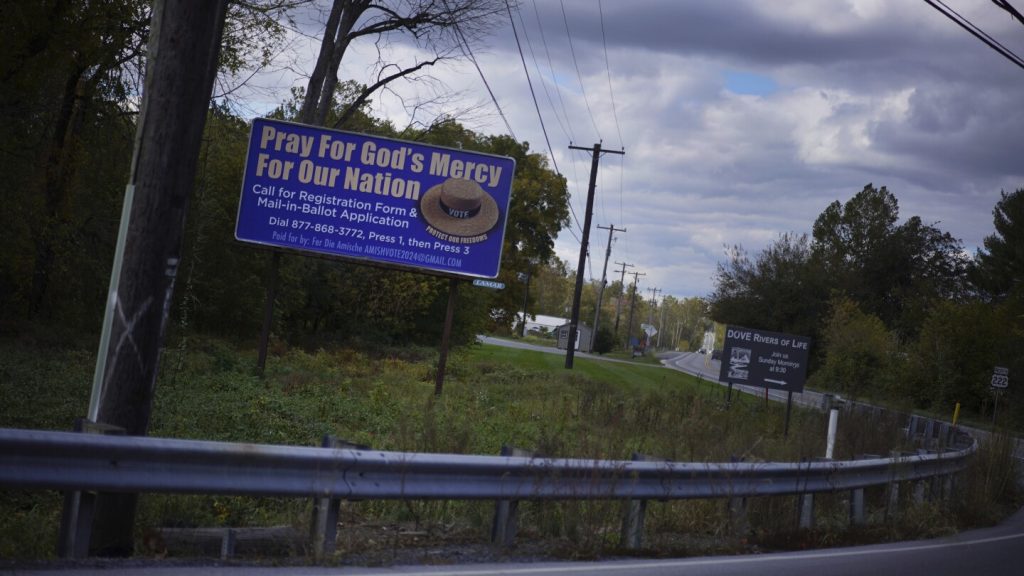Amish communities in Pennsylvania are being targeted for voter registration efforts ahead of the 2024 election. While most Amish traditionally do not vote, a small minority have registered and voted in past elections. Republicans are making efforts to appeal to the Amish community through billboards, ads, door-to-door canvassing, and community meetings. They believe that the Amish may be receptive to GOP talking points such as smaller government, less regulation, and religious freedom. U.S. Rep. Lloyd Smucker, himself of Amish background, predicts a potential increase in Amish voter turnout based on the enthusiasm he has seen.
According to Steven Nolt, director of the Young Center for Anabaptist and Pietist Studies, the majority of Amish individuals do not vote and have historically abstained from participating in elections. However, there are some Amish settlements in Lancaster and other areas where voting has taken place, typically by less than 10% of the population. In 2020, an estimated 3,000 Amish individuals voted in the Lancaster area, with several hundred more elsewhere in the state. Despite efforts to increase Amish voter numbers, it is unlikely that their votes alone would have a significant impact on the outcome of an election in Pennsylvania.
The Amish community’s theology, which emphasizes a separation between earthly government and the church, is a key factor in their reluctance to participate in voting. Wayne Wengerd, Ohio state director of the Amish Steering Committee, notes that while many Amish adhere to this belief, there are some who still choose to vote. The majority of Amish voters in Lancaster County register as Republicans, influenced by the historical Republican voting patterns in the region. Campaign efforts to mobilize Amish voters have been ongoing since the 1960s, reflecting the broader trend of political parties seeking to engage various constituencies.
Despite some Amish individuals being swayed by appeals to vote, traditional two-kingdom theology within the Amish community prioritizes being citizens of a heavenly kingdom over earthly government. While some Amish may feel a moral obligation to vote in order to stand against perceived evils, others maintain a strict separation between church and state. The influence of neighbors and local political affiliations also plays a role in shaping Amish voting patterns. Overall, the Amish community’s historical tendency towards non-participation in politics remains a defining aspect of their cultural identity.
In an era where every vote counts, the potential impact of Amish voter turnout is being considered by political campaigns. While efforts to mobilize Amish voters may see some success in increasing numbers, their overall influence on election outcomes in swing states like Pennsylvania is likely to be marginal. Despite differing theological perspectives on the role of the church in politics, the Amish community continues to navigate the intersection of faith, tradition, and civic engagement in the context of modern elections.


